Let’s sing our hearts out to karaoke!
“I do not know about you, but idea of singing in front of other people is frightening to me.”
That is what my Polish friend said when I invited him for a night out to karaoke. It was his first time in Japan, he was pretty busy with plans of buying overpriced souvenirs in Asakusa and looking at dead fish at Tsukiji Market (two sins everyone committed when visiting Tokyo).
I understand his fear well. However, my first experience in karaoke was a great one and it was enough to get through my phobia of performing in public. I am also glad to say that it was not because of drunk alcohol that I could sing so freely, but thanks to genuine fun I had and amazing atmosphere my friends and that place created.
Karaoke would not have become an important element of japanese contemporary culture, if it had not been for the passion many Japanese have for music, playing instruments and singing. Unsurprisingly, inventor of the first karaoke machine is also a big music enthusiast. Daisuke Inoue is a talented keyboarder and a less-talented drummer, who wanted to give people a possibility to sing their favourite pre-recorded ‘only orchestra’ tunes. He never expected his invention to become a big trend worldwide, so he also did not patent it when he had an occasion to. Fortunately, he did earn enough to sustain him for the rest of his life, so he is able to meet and sing with his grandchildren almost every day. For creating a machine that united Japanese in their love for singing he was also awarded an IG Peace Nobel Prize.
Current karaoke machines are of course way different from Inoue’s ones invented in the early seventies. His Juke 8 took a considerable amount of space and had very limited options, while current devices’ portability and amazing interfaces can compete with many other electronics companies’ products. New machines come out often and karaoke parlors try to be equipped with the latest products.
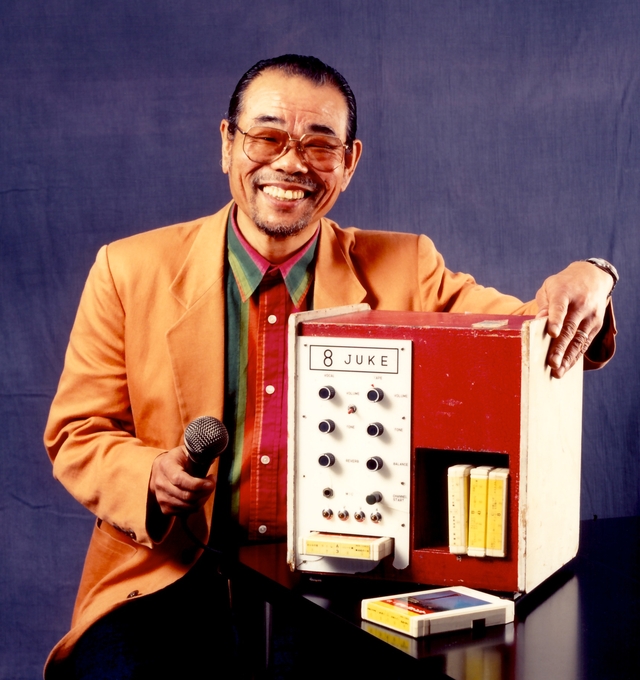
What can you expect from japanese karaoke parlors?
Although things such as fancy furniture and food availability depend on the place we choose, most basic things you will get in every karaoke are:
- Your own room.
This probably is no surprise to people living in East Asia and both Americas but Europeans are often shocked that you get a small studio for you and the group you go with. Going in groups of 2 to 6 people almost never requires an earlier reservation, but in smaller parlors you might have a problem with getting a room for group of 7+. A lot of big brands have English websites and English speaking staff for room reservation inquiries.
You can rent a room for at least 1 hour (there are places that allow a minimum of 30 minutes too). Time starts ever since you receive your check though, so 1 hour realistically gives you and your group time to sing 6-8 songs. In my opinion 1 hour can be satisfactory for a group of 2 people, but for more people time will fly by very fast. If still unsatisfied and in the mood for more you can always buy an extension.
…or you can also forget all this and buy フリータイム (furi-taimu – free time), which gives you an ‘unlimited’ use of the room. The catch is that when all the other rooms in the parlor become full, those where people are enjoying free time are the first ones to be emptied. Free time offers are more expensive than for example buying only 2 hours of time, so if your stay became shorter than anticipated adequate refund will be given to you. To be honest though, in my experience free time in a karaoke was never shorter than 5 hours and most often all rooms do not become full.
Rooms always have a big couch and a wide table. Cheaper parlors cannot afford any beautifying elements, but fancier places put waterproof wallpapers and tacky pictures or paintings. Generally there are no easily perishable items or decorations laying around since they could be easily stolen or broken. As a standard lights are turned off, but to add some disco vibe to your evening colourful lights are a common thing.
- One drink or 飲み放題 (nomihodai – drink as much as you can) offer.
For most karaoke parlors ordering at least one alcoholic or soft drink is necessary and serves as a way of paying for an entrance. Nomihodai offer allows you to drink an unlimited amount of drinks during the room rental time and usually costs around 3 times more than one drink offer. Therefore, it becomes a very enticing offer for people who wish to sing for an extended period of time. Fancy places even have several nomihodai offers, usually called ‘standard’, ‘premium’, ‘vip’, etc.
- Magical telephone.
This wish granting device will be your way of communicating with parlors staff. By picking up the phone handset a call to karaoke reception is automatically made. To make your order for another drink just say how many and which you would like to have. Do not worry if your singing friends are making it hard for you to hear what a staff member on the other side of the phone is saying. Usually no questions are asked and waiter will serve ordered drinks short after.
Phone will also allow you to extend your room rental period. When there are only 10 minutes left to sing the phone will ring to notify you that your omnipotent power is slowly coming to an end. Kindly ask for an extension or tell your friends that it is the last chance to sing Backstreet Boys – I want it that way.
- Lastly, singing equipment.
That includes a TV where music videos and lyrics are displayed, microphone(s), stereo to regulate music and mic volume and tablet(s) used mainly for choosing songs.
Tablets are quite simple to use, but home screen will be displayed in Japanese. If that is okay with you, you can choose songs from 曲名 (kyoku-mei – title of the song), 歌手名 (kashu-mei – name of the musician/band), 歌詞 (kashi – search by lyrics of the song), キーワード (kiwado – keywoard). You can also look for a song based on their place in ランキング (rankingu – popularity ranking) or whether it is in an アニメ (anime – animated movie) or 映画 (eiga – movie).
Even if you choose an English song from a japanese homepage, displayed lyrics will be still in japanese (written with katakana, set of symbols that helps with pronunciation of English words). For foreign songs look for the button ‘foreign’ where you will find songs in English, Korean, Simplified Chinese and Traditional Chinese. Also, foreign songs can only be searched by either their titles or bands/musicians names.
Before ordering a song you can set the key in which you wish to sing, increase or decrease song’s tempo, turn off the lyrics (but why would you do that), turn on a funny game for when singing (my favourite includes cheeky monkeys trying to cover the lyrics) or even cut your song in line with songs chosen earlier by your friends.
Karaoke parlors are most often located next to train stations, japanese nighttime bars called izakaya, some tourist attractions, shopping malls, and pretty much anywhere they want to be located really.
If you are looking for the best of best though, here are some brands that offer good quality service.
There are several things that Rainbow does better than other karaoke parlors. Their uniquely stylized and decorated rooms, including one with real instruments, set the mood perfectly for customers who feel like being in a club, pub or on a live stage. They never fail to provide working and good equipment and keep their devices and electronics crystal clear. They have very professional and helpful staff, who are also fluent in English.
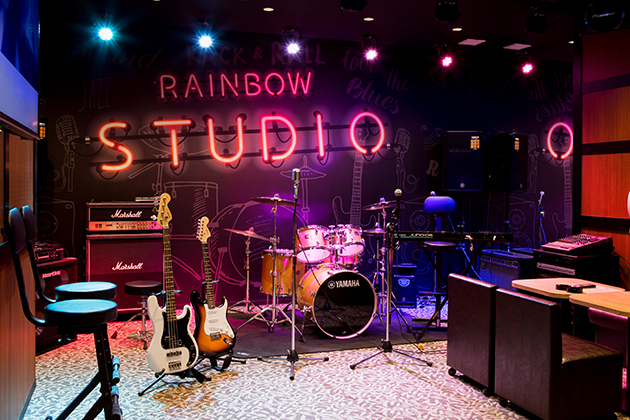
Rainbow also has very cheap rental prices. 1 hour of use technically comes for 0 yen, which in fact is the price of one alcoholic (~480 yen) or unlimited soft drinks (650 yen), which is still very reasonable and probably one of the cheapest for the quality service they provide. Extension of time by 30 minutes costs additional 380 yen per person. They also have 2 nomihodai offers, as well as good food, including pizzas, fried chicken, japanese vegetable salads, french fries, etc.
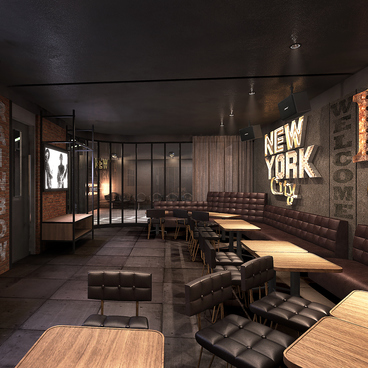
Karaoke rainbow has parlors in many prefectures, so even if you are not in the capital, you can still enjoy some stylish karaoke in: Gunma, Tochigi, Ibaraki, Saitama, Chiba, Aichi, Nara, Wakayama, Osaka, Kyoto and Hyogo prefectures. But in case you are currently shopping at Shibuya’s amazing malls, why not come and try singing at their most famous place on the 8th floor Shibuya MODI building in Tokyo.
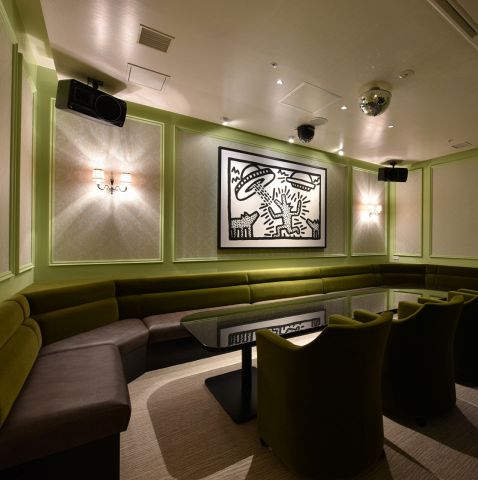
Most of Fantasy’s parlors will lack in decorations Rainbow is known for. This is probably because Fantasy puts attention to something different, which is maximizing entertainment. Fantasy offers many (MANY) party plans for birthdays, graduations, business meetings, wedding anniversaries, etc. Bigger stores have rooms with available Virtual Reality karaoke devices, ball pits for children, dancing halls, studios with usable instruments.
Fantasy provides a large variety of foods for a cheap price, including some japanese specialties you can make yourself, like wonderful cooked octopus filled takoyaki. For special parties, you can get a cake if you reserve a room in advance.

Another big plus of Fantasy is its super cheap prices, 30 min for soft drink nomihodai costs 350 yen and alcoholic nomihodai is 600 yen. Free time is an amazing offer here, depending on the store prices very between 2,000 and 3,000 yen for 6h of singing with free soft drinks and alcohol.
And if you are planning a fancy date, then check out Fantasy’s Hana store in Kanagawa Prefecture in Hashimoto. This store cares about romantic atmosphere and has some good wines and champagnes that will satisfy even a harsh critic.
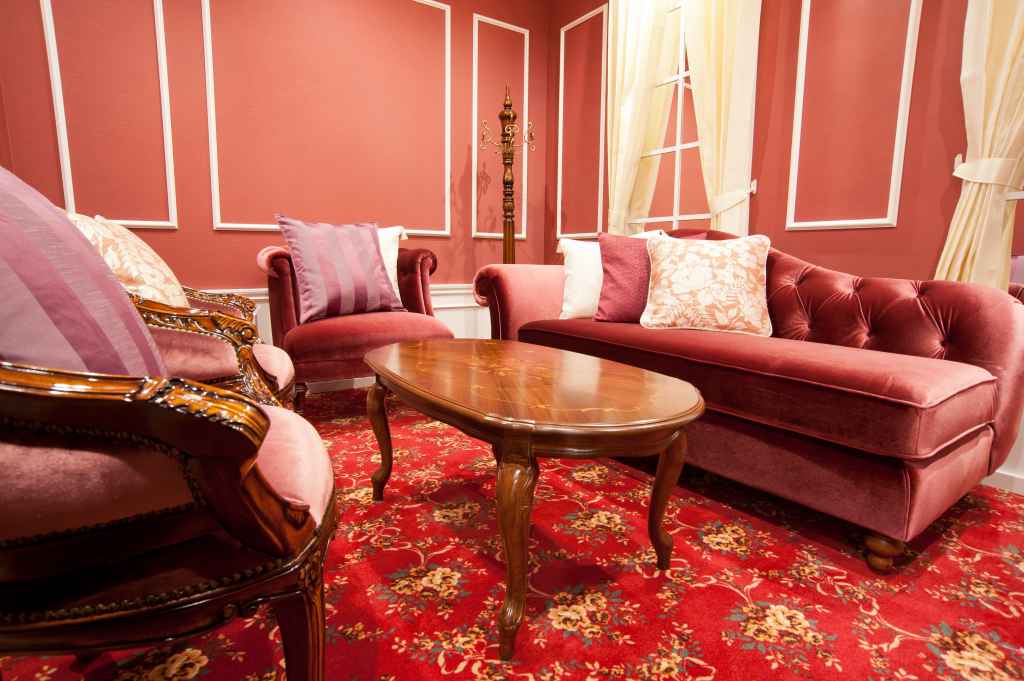
The only minor inconvenience for foreign travelers is that not all Fantasy’s stores have English speaking staff, but if you use only the vocabulary I mentioned in this blog post and keep in mind the things I said, you will get around just fine.
Pasela is not famous only for its karaoke. This company was originally as a brand of high-quality restaurants, video game themed cafes, bars, pubs in Osaka and Tokyo. This is why in Karaoke Pasela you can enjoy amazing food, incomparable to any other karaoke brand. Rooms are also very nicely decorated, trying to keep the atmosphere of a cozy bar or a fancy restaurant. You should especially try to go there in a group of more than 6 people, since their big karaoke boxes are just dream-like. Luckily for foreign travelers, Karaoke Pasela has staff speaking very good English.
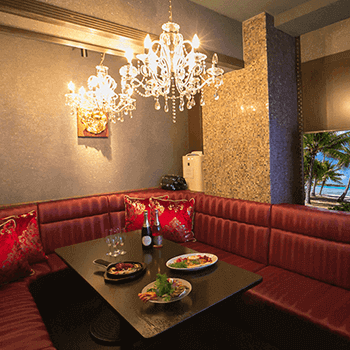
You can also try singing in Pasela’s Final Fantasy themed cafe. Just like the cafe space, karaoke boxes are stylized to resemble places from the games. Music available there is not different from a standard parlor, which I believe is a big plus, since limiting songs only to those from the game would probably discourage customers to come (what a devotion that would be tho).
Prices here are noticeably higher than two previous brands and it is easy to go overboard if you want to eat and drink a lot. This is why especially here I recommend going for the nomihodai offer, which price varies from 1,700 yen to 2,000 yen + room rental price. Since they take pride in how good they food is, you can also have an all-you-can-eat here for additional 1,500 yen. 30 minutes room rental costs from 500 yen to 600 yen, while free time is around 3,000 yen. If that is too much for you, they have some special discount menus available at their stores.
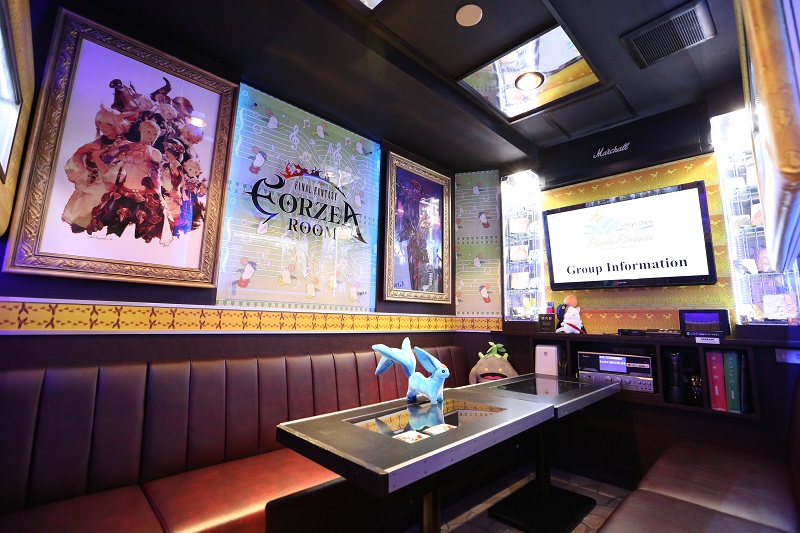
So many places available and each and every one has its own charm (almost). My friend arrived here without any faith in his own voice, nor did he really feel like singing that day. It was all my idea to bring him to a party with people he did not know and who did not speak a common language. Karaoke has an amazing power to bring people together and break the ice.
The idea of making a karaoke machine came to Daisuke Inoue after he pre-recorded some vocal-less track for his businessman friend, who wanted to get along better with his work colleagues. Creation of this ingenious inventor had an enormous positive effect on people’s work, love and friend relationships in Japan and all over the world.
“I think I will go to karaoke next time too” said my friend to me before leaving Japan. “I might even go alone if you will be busy” he added. Oh no dude, I will be ready.
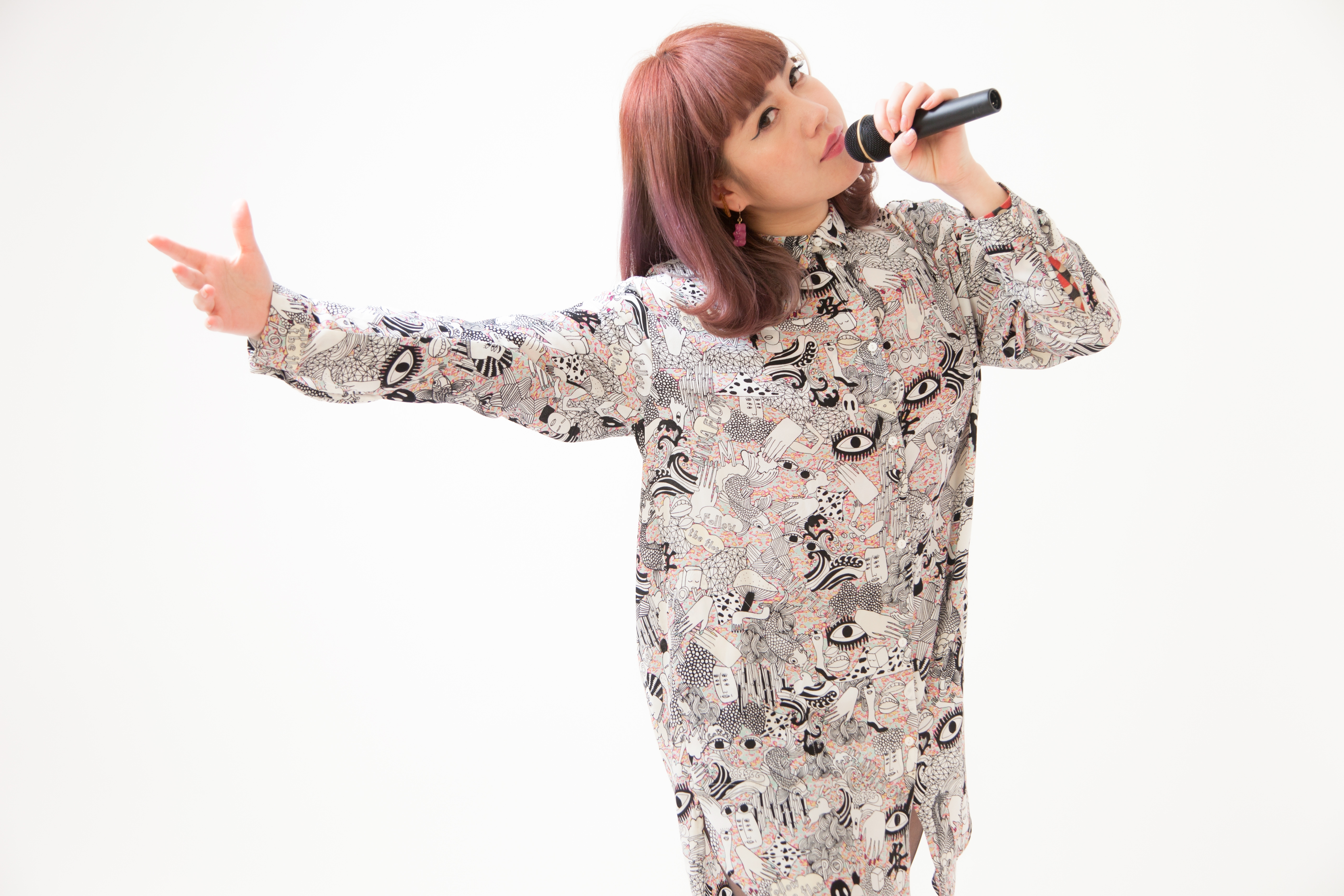
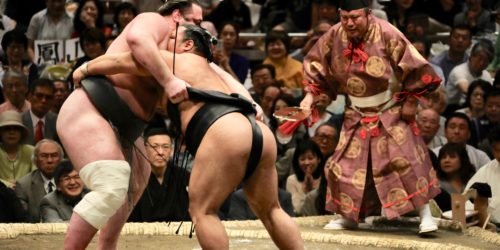
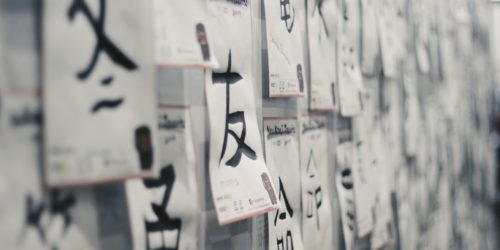
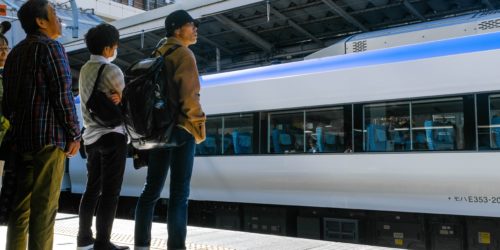
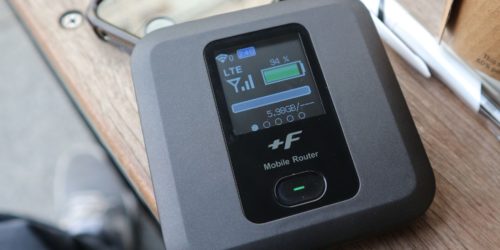
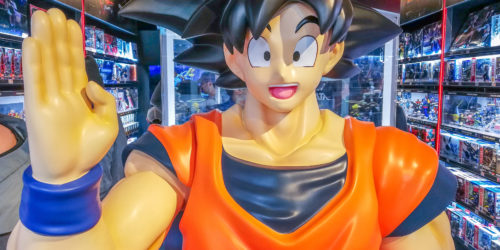
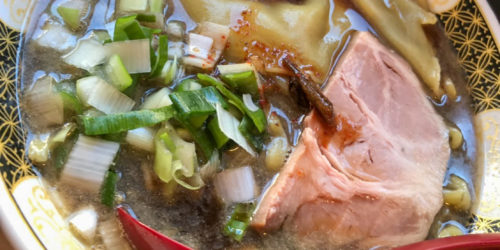
Awesome post! Keep up the great work! 🙂
I am regular reader, how are you everybody? This post posted at this website is actually good.